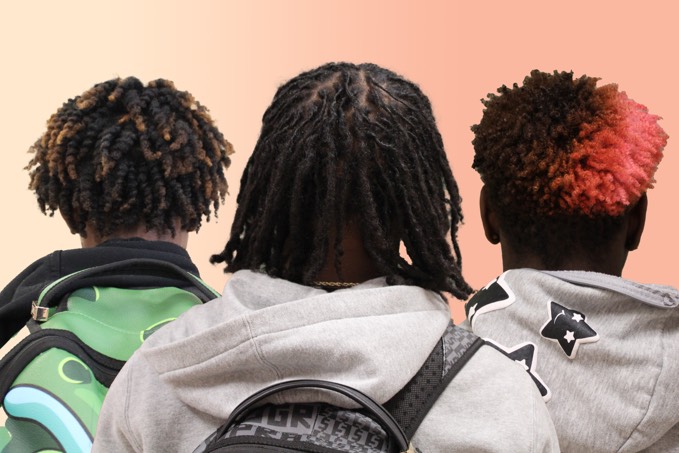On May 27, Governor Greg Abbott signed a bill into law that prohibits race-based discrimination in Texas in workplaces, schools, and housing policies.
This was an incredible step forward in making sure that equal opportunities and treatment in private environments are available to everyone, and the act, titled “Creating a Respectful and Open World for Natural Hair” (CROWN) addresses an issue that has plagued the black community for decades.
However, even with the CROWN Act in place, prejudice against black hairstyles, specifically for black men, has prevailed in the most heartbreaking ways.
On August 31, Darryl George, a junior at Barbers Hill High School, was suspended over his dreadlocks. His family filed a federal lawsuit on against Texas Governor Greg Abbott and the state’s Attorney General Ken Paxton, claiming that the officials failed to enforce the state’s CROWN Act.
This isn’t the first time a black student’s hair has been the subject of a controversial story.
In December 2018, Buena Regional High School wrestler Andrew Johnson was given a humiliating ultimatum before his wrestling match: cut off his dreadlocks, then and there, or forfeit.
These harrowing stories garnered a lot of attention on social media. Alan Maloney, the referee who presented Johnson with those conditions, and Barbers Hill High School were put under heavy scrutiny for blatant discrimination. These stories highlight a sad and ongoing stigma surrounding black men’s hair, especially when worn in locs or protective styles.
Historically, black men in general have been the main targets of some of the most harmful stereotypes that African Americans are faced with. These stereotypes tend to tie the Black race to crime and thug-like behavior.
This originates from the systematically racist U.S. policies that have resulted in black people being disproportionately criminalized and punished. Ultimately, the appearance and personalities of these accused black men have translated into disapproval of anyone who dresses, talks, or acts as they do.
“I thought I was going to be stereotyped for a “thug”, just because I’m a young black man with dreads,” said sophomore Christopher Gooden.
These harmful, conventionalized ideas have led to an unfortunate standing that natural hairstyles such as afros, locs, and twists are unprofessional or messy, though this just isn’t right. Black men, like everyone else, should have the freedom to truly express themselves without backlash. It should never be about the hairstyle. Instead, it should be about the person wearing it.
As these conversations continue, it is important that schools, workplaces, and society as a whole adopt more inclusive policies. By promoting diversity and embracing all hairstyles, we create a world where individuals are valued for who they are and not how they wear their hair. We must support those who choose to embrace their hair in their own unique ways.
“One of the main reasons I choose to keep my hair in dreads is because a lot of our athletes have dreads or longer hair. With me being a professional figure, I want to show them that you can have leadership and professional roles despite stereotypes regarding hair that say otherwise,” said football coach Quinten Green, who sports shoulder-length dreadlocks.
It’s about recognizing that beauty comes in all forms and that diversity should be celebrated. The media plays a large role in shaping perceptions of beauty, and black men’s hair is no exception. Representation is important, and the media should showcase a wide range of hairstyles and textures. In this way, you can challenge negative stereotypes and highlight the beauty of black hair in all its forms.
Educating yourself and others about the importance of black hair is an important step in breaking down the stigma. Hair is more than just a style. This is a cultural and personal expression that deserves respect and understanding. After all, our hair is like an art canvas, and the way we choose to express ourselves should be honored, not criticized.

